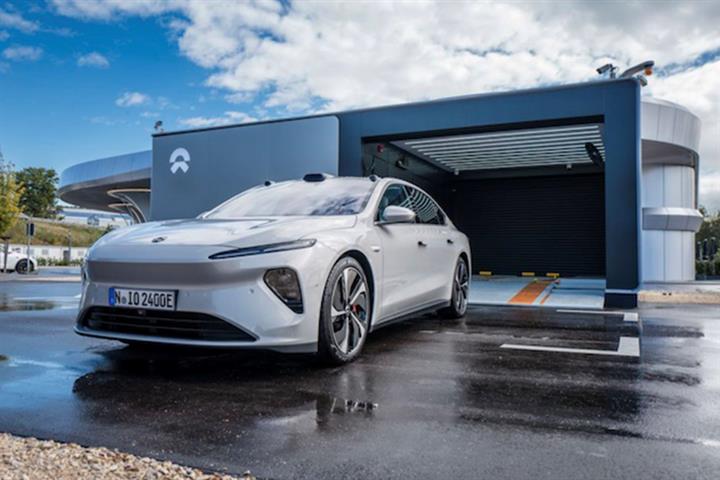 Chinese NEV Makers Launch Vehicle Subscription Service in Europe
Chinese NEV Makers Launch Vehicle Subscription Service in Europe(Yicai Global) Oct. 10 -- Several Chinese new energy vehicle makers, including Nio and BYD, have announced their entry into the European market. To enhance brand exposure, in addition to selling vehicles, Nio and BYD have even joined hands with well-known European car rental firms to launch subscription service in Europe.
BYD signed a cooperation agreement with vehicle lessor SIXT, which will purchase at least 100,000 NEVs from the carmaker over the next six years.
The Chinese firm will deliver the first batch of thousands of battery vehicles in the fourth quarter to countries, including Germany, the United Kingdom, France and the Netherlands, in the first cooperation phase.
Car rental companies like SIXT and Eurocar are eager to buy new cars and NEVs to replace old vehicles, but Europe’s current supply is tight, which may be a good opportunity for Chinese carmakers, a source familiar with European vehicle market operations told Yicai Global.
“Selling 100,000 vehicles to leasing firms means not only sales in Europe, but more visibility and attention for BYD, as its products will turn up on the streets of the continent,” he added.
Nio announced the launch of a vehicle subscription model in Germany, the Netherlands, Sweden and Denmark on Oct. 8, in which the rental price includes all cost except the charging fee, while other car manufacturers have a rental price as well as charges for other services.
In addition, Nio has signed an agreement with LeasePlan, Europe’s largest car rental platform, to launch the vehicle subscription business.
By 2030, the subscriptions in Europe and the United States may reach 5 million to 6 million vehicles, about 15 percent of new car sales, worth USD30 billion to USD40 billion, according to a Boston Consulting Group research report. And Europe has the potential to become the largest subscription market.
Before Nio, China’s Lynk & Co has tried the subscription model in Europe. Unlike Nio, Lynk & Co provides both subscription and purchase channels. Its subscription charges don’t include maintenance fees, but it emphasizes sharing. Lynk & Co’s free members, if they need, can rent cars from other members, bringing additional income for them.
Lynk & Co had more than 150,000 subscription members by September, it said. Income from such subscription accounts for 90 percent to 95 percent of Lynk & Co’s total retail sales revenue in Europe, according to Alain Visser, senior vice president at Geely Automobile Holdings, who is also chief executive officer at Lynk & Co International Sweden.
If one ignores infrastructure or the returns on fixed investment in the early stages, the vehicle subscription model will yield more gross profit margins than selling cars, Li Bin, chairman of Nio, noted.
“If a brand has a low market awareness in Europe, it is especially important to provide users a better experience to obtain recognition,” said Cui Dongshu, secretary-general of the China Passenger Car Association.
Unlike previous exports of products in foreign trade, Chinese carmakers have now started to focus on entering overseas markets as a system. Some like SAIC Motor, BYD and Nio have begun to set up overseas branches for operations, sales, and research and development to establish a more complete service system.
For example, before delivering products in Europe, Nio has already built its energy plant, battery swapping stations and charging piles in Hungary, and set up an innovation center in Berlin, Germany, to verify intelligent car and self-driving related technologies.
Moreover, in terms of service and product use, Nio will build Nio House and Nio Space in cities such as Hamburg, Frankfurt, Duesseldorf, Amsterdam, Rotterdam, Copenhagen, Stockholm and Gothenburg. The carmaker plans to build 1,000 battery swapping stations by 2025 in overseas markets, most of which will be located in Europe.
“We have not taken into account the infrastructure or the returns on fixed investment in the early stages,” Li told media, including Yicai Global, recently.
Editor: Peter Thomas